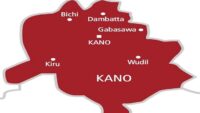By Chinelo Obogo
As President Bola Tinubu’s administration marks its second anniversary, aviation stakeholders have taken stock of the sector’s performance under Festus Keyamo, who was appointed the Minister of Aviation and Aerospace Development in August 2023.
Though the sector is still shackled by various challenges, those who spoke to Daily Sun commended Keyamo for driving meaningful progress across critical areas of the sector.
He was instrumental in offsetting the $850 million owed to international airlines, a key achievement that led to Nigeria’s removal from the watchlist of the top nine debtor nations, collectively burdened with $1.4 billion in outstanding ticket sales.
Experts have hailed the move as a bold stride by Keyamo towards restoring confidence in the sector.
Nonetheless, they emphasise that while this marks a turning point, more effort is required to navigate the headwinds on the sector’s flight path to growth.
Policy reversals
Keyamo’s first major decision after his appointment was the cancellation of the controversial contract to build a second runway for Nnamdi Azikiwe International Airport, Abuja. The contract had swelled from an initial N90 billion to N532 billion, a spike which Keyamo described as “very fraudulent.” Following the cancellation, he initiated a fresh bidding process, which he said is a demonstration of his commitment to transparency.
Shortly after, Keyamo announced the cancellation of the controversial Nigeria Air project. The decision was widely applauded by many stakeholders, particularly the Airline Operators of Nigeria (AON), who dragged the administration of former President Muhammadu Buhari to court on grounds that the initiative, spearheaded by then Minister for Aviation, Hadi Sirika, was not in Nigeria’s best interest.
They particularly frowned at the fact that Ethiopian Airlines, a foreign entity, will dominate Nigeria’s domestic travel market, leaving capable domestic carriers with the shorter end of the stick.
Release of trapped airline funds
Before the $850 million owed international carriers was cleared, they restricted lower inventory fares for the Nigerian market and this escalated cross-border trading challenges.
At the height of the crisis, Yinka Folami, President of the National Association of Nigeria Travel Agents (NANTA), revealed to Daily Sun that Nigeria had lost up to 40 per cent of its travel market share. In a bid to address the situation, the Minister convened a series of strategic meetings with key stakeholders, including NANTA, the Minister of Finance, international airlines, and the Central Bank of Nigeria.
The engagements culminated in the release of the trapped funds, paving the way for airlines like Emirates to resume operations after suspending flights due to the prolonged impasse.
In addition, airlines reopened access to previously blocked lower fare classes, triggering a welcome drop in ticket prices and signaling a gradual restoration of confidence in the market.
Nigeria removed from global aviation watchlist
Another major success achieved by Keyamo was ensuring Nigeria’s compliance with the Cape Town Convention (CTC). For many years, global aviation companies blacklisted Nigeria for not complying with the ‘Convention on International Interests in Mobile Equipment’ and the ‘Protocol on Matters Specific to Aircraft Equipment’, which was concluded in Cape Town on November 16, 2001. The primary aim of both documents is to resolve the problem of obtaining opposable rights to aviation assets which includes airframes, aircraft engines and helicopters.
But Nigeria failed to comply with the agreement as some local operators had, in the past, breached it, making it difficult for lessors to have access to their aircraft leased by domestic airlines that default.
This made the country’s compliance score dip below the required threshold, causing international lessors and companies to place restrictions on it and made it impossible for domestic airlines to access international aircraft leases.
But in September, Justice John Tsoho, Chief Judge of the Federal High Court, signed the Cape Town Convention (CTC) practice direction to enable domestic airline operators to access aircraft on dry lease. This progress led to Nigeria’s removal from the watchlist and a marked improvement in the country’s global aviation compliance rating, particularly in relation to the Cape Town Convention (CTC) practice guidelines.
In October, the Aviation Working Group (AWG) announced on its website that Nigeria’s CTC Compliance Index score had risen to 75.5 percent, elevating the country into the ‘high category’. This development has sparked renewed confidence among aircraft leasing firms and prompted a reduction in insurance premiums for Nigerian airlines.
A key catalyst for this shift was the amendment to Nigeria’s domestication of the CTC Protocol, which now grants the Nigerian Civil Aviation Authority (NCAA) the authority to promptly release aircraft to lessors in the event of lessee default—without obstruction from court injunctions, thus aligning Nigeria more closely with international best practices.
The change has significantly restored confidence among international aircraft lessors dealing with Nigerian airlines.
Infrastructure advancements
Nigeria’s aviation sector has witnessed notable infrastructural upgrades aimed at enhancing safety, efficiency, and passenger experience. Among the key developments are the rehabilitation of Runway 18R at Lagos Airport and the refurbishment of Wing E at the Murtala Muhammed International Airport. Additionally, the introduction of Compressed Natural Gas (CNG) buses for intra-terminal passenger transport signals a move towards more sustainable airport operations.
In a significant boost to capacity building and technical self-reliance, Nigeria signed a Memorandum of Understanding (MoU) with Boeing in August 2024. The agreement covers technical support, aviation training, and the development of local Maintenance, Repair, and Overhaul (MRO) facilities—an essential step toward reducing dependence on foreign service providers.
Further expanding Nigeria’s international aviation footprint, Borno Airport has been upgraded to international status. The country has also broadened its global connectivity by signing new Bilateral Air Service Agreements (BASAs) with nations including the United Arab Emirates, United Kingdom, Jamaica, Namibia, and Canada.
To strengthen consumer rights and regulatory oversight, the Nigerian Civil Aviation Authority (NCAA) launched a Consumer Protection E-Portal. The platform automates the complaint resolution process, allows passengers to submit grievances directly, monitors real-time airline performance, and provides access to resolution data. In addition, the NCAA successfully re-certified Abuja and Lagos International Airports, ensuring their continued compliance with International Civil Aviation Organisation (ICAO) safety and operational standards.
Stakeholders’ views
The Airline Operators of Nigeria (AON) recently offered an assessment of the minister’s performance through a joint statement by its President, Abdulmunaf Yunusa and Vice President, Allen Onyema. They highlighted Air Peace’s launch of direct Lagos-to-London flights in March 2024 as one of the most significant milestones, describing it as a breakthrough that ended the long-standing monopoly of foreign carriers on the lucrative UK-Nigeria route.
This development, they noted, compelled competing airlines to slash ticket prices, delivering tangible benefits to Nigerian passengers. AON credited the minister’s decisive role in securing reciprocal operating rights as a key enabler of this achievement.
The association also praised Nigeria’s participation in the Aviation Finance Conference held in Dublin, noting that it helped enhance the country’s visibility on the global aviation stage. They further commended the minister’s commitment to the full implementation of the Cape Town Convention (CTC), which they said has eased long-standing operational hurdles for domestic carriers and bolstered investor confidence in the sector.
President of the National Association of Air Pilots and Engineers (NAAPE), Abednego Galadima, told Daily Sun that Keyamo’s hands-on approach and direct engagement with unions, airlines, and regulatory bodies is commendable. He also said that the signing of the CTC practice direction will simplify aircraft acquisition, thereby reducing Nigeria’s reliance on wet-leased aircraft and expanding employment opportunities for Nigerians in the aviation industry.
“In the two years of this administration, the minister has shown leadership and patriotic zeal. He has steered the industry in the right direction so far. His engagement with critical stakeholders, including the airlines, the unions, and all others, has been exemplary. Moreover, he is effectively driving the President’s agenda. He has had a number of wins, such as the signing of the practice direction to ensure that airlines acquire aircraft more easily. This is a welcome development because one of the major challenges the industry has faced is the lack of capacity for the airlines. Some routes had to be suspended due to a lack of aircraft, and therefore, any measure to improve this is crucial. Because our airlines were suffering from this, they would bring in wet-lease aircraft, which deprives Nigerians, particularly those in maintenance and crew, of jobs which is not a good development.”
He added, “However, the issue of establishing a national MRO should be given speedy attention, but in terms of airport improvement, we can say that so far, appreciable work has been done by this administration. We are also still grappling with the issues of expatriate quotas. There are still a few airlines that are not complying, and it is not good for the nation. Despite the President’s effort to prioritise Nigerian products, some of these airlines still bring in expatriates who are placed over Nigerian professionals.”
Aviation consultant, Amos Akpan, in his assessment of the minister’s tenure, told Daily Sun that Keyamo’s openness to stakeholder engagement and Nigeria’s domestication of the CTC are commendable. According to Akpan, these changes have boosted lessor confidence and improved aircraft access for Nigerian carriers. He also commended Keyamo’s push for more favorable BASAs and his support for domestic airlines. However, Akpan highlighted areas that he believes require urgent attention.
Akpan said: “Areas where the minister has done well include meeting with stakeholders for input on policies and their implementation. This shows he listens, consults, and learns as a leader. There was also the amendment to our domestication of the CTC protocol, which empowers the NCAA to release aircraft to lessors on demand when the lessee defaults or in case of dispute, without regard to frivolous court injunctions. This has restored confidence among lessors of aircraft to Nigerian airlines. There is also the aggressive review of some bilateral air services agreements and the signing of new ones, as well as support for Nigerian airlines designated to utilize our BASAs. Under his watch, Nigerian passengers are receiving attention from the providers of air transport services. The subject of compensation for flight delays and flight cancellations has been brought to the table for solutions.”
He further pointed out areas needing attention, saying: “Areas that still need attention are for aviation agencies to focus on service delivery instead of becoming revenue-generating institutions for the federal government. Currently, I hear the federal government retains 50 percent of the funds the agencies generate. This makes it difficult for the agencies to fund repairs and upgrades of their infrastructure to the standards we see in other regions. There is the immediate issue of forex to buy spares and pay for equipment. The airlines and handling companies have the naira but no forex allocated to pay for equipment leases, purchase of spares, and maintenance. The creation of aeronautical universities provides more opportunities for human capital development, but we need to get more out of NCAT, and the school’s facilities need upgrading. The minister has to deliver on the knotty issue of airport concession. Past regimes have not been able to achieve success in this particular task. If the current minister is able to overcome this challenge, it would be a great achievement for him. He has approached aircraft manufacturers to market the readiness of Nigerian airlines to lease airplanes, and this is a plus for his passion to grow domestic airlines. However, sourcing funds and forex on terms and conditions that would allow the airlines to survive as businesses remains the challenge.”
Also speaking to Daily Sun, an aviation analyst, Olumide Ohunayo corroborated previous positions.
He commended Keyamo’s “Nigeria First” approach and credited the minister with attracting renewed interest from foreign investors and companies. He however called for more clarity on the future of the Federal Airports Authority of Nigeria (FAAN) and cautioned against rushing the demolition of the Murtala Muhammed International Airport (MMIA) terminal, advocating instead for a bit by bit approach to avoid operational disruptions.
Ohunayo said: “I want to start by commending the Minister’s ‘Nigeria First’ principle. He has been able to boost the private sector, including the airlines, catering firms, and other subsectors in the ecosystem. He has clearly shown by his actions that he wants the private sector to thrive. This has changed the perception outside Nigeria regarding our airlines. We can now see that international companies are coming to discuss with our airlines, which didn’t used to happen before. So far, he has extricated himself from the pitfalls which hampered the former minister, who put himself first before the nation. This time around, he has shown that the nation comes first, and he wants to lead that way. This has made organizations willing to bring offers to him. Though we are waiting for these offers to translate into investment in our aviation sector, which is the next challenge for him, I must commend him for genuinely supporting the airlines and other companies.
“There are some things he did that I didn’t like at the initial stage, like the temporary shutting down of Arik Air, but he has gotten many things right, and there is a need to support him. However, there is still the issue of the policy direction towards FAAN.
Personally, I want FAAN to be an airport company like its counterpart in South Africa, but this cannot happen if the agency is not given the space. This is an organisation that has only two or three viable airports out of over 20, yet it is expanding its directorates and increasing its wage bill. He should also not rush into bringing down the MMIA. It must be carefully planned and should be taken down in bits.”


















Leave a comment